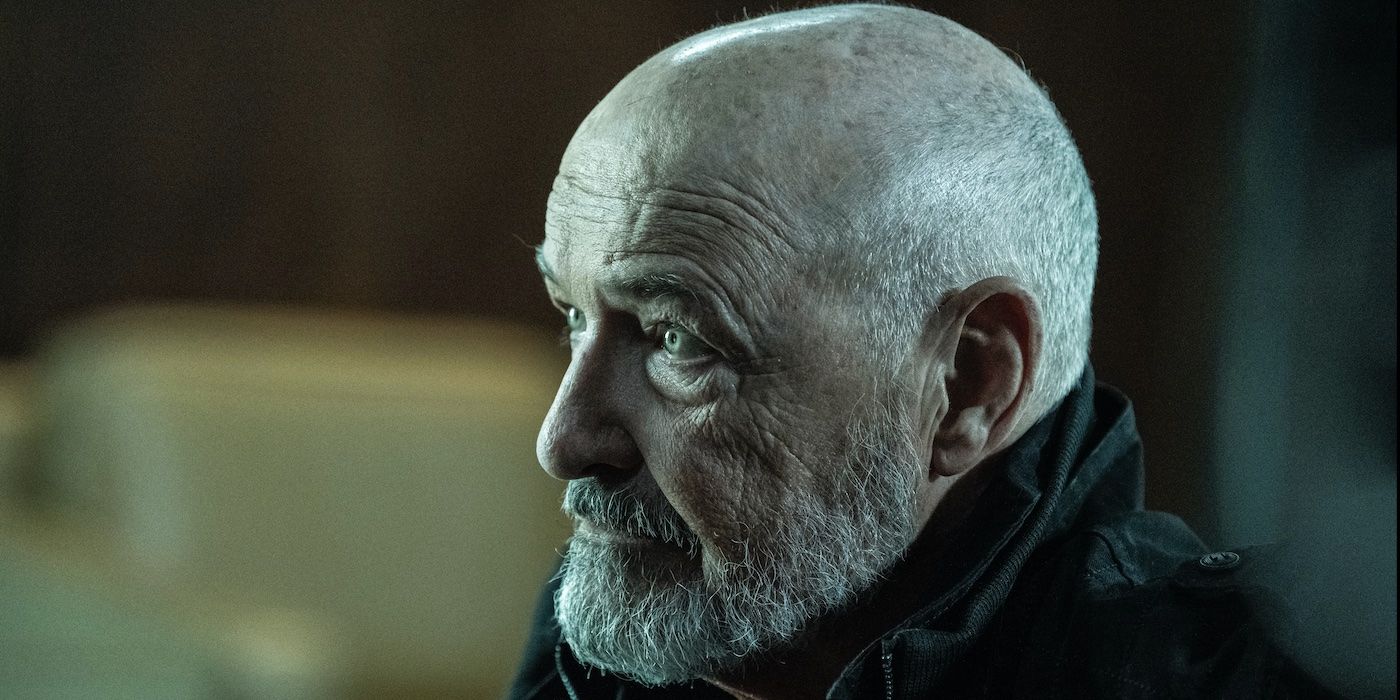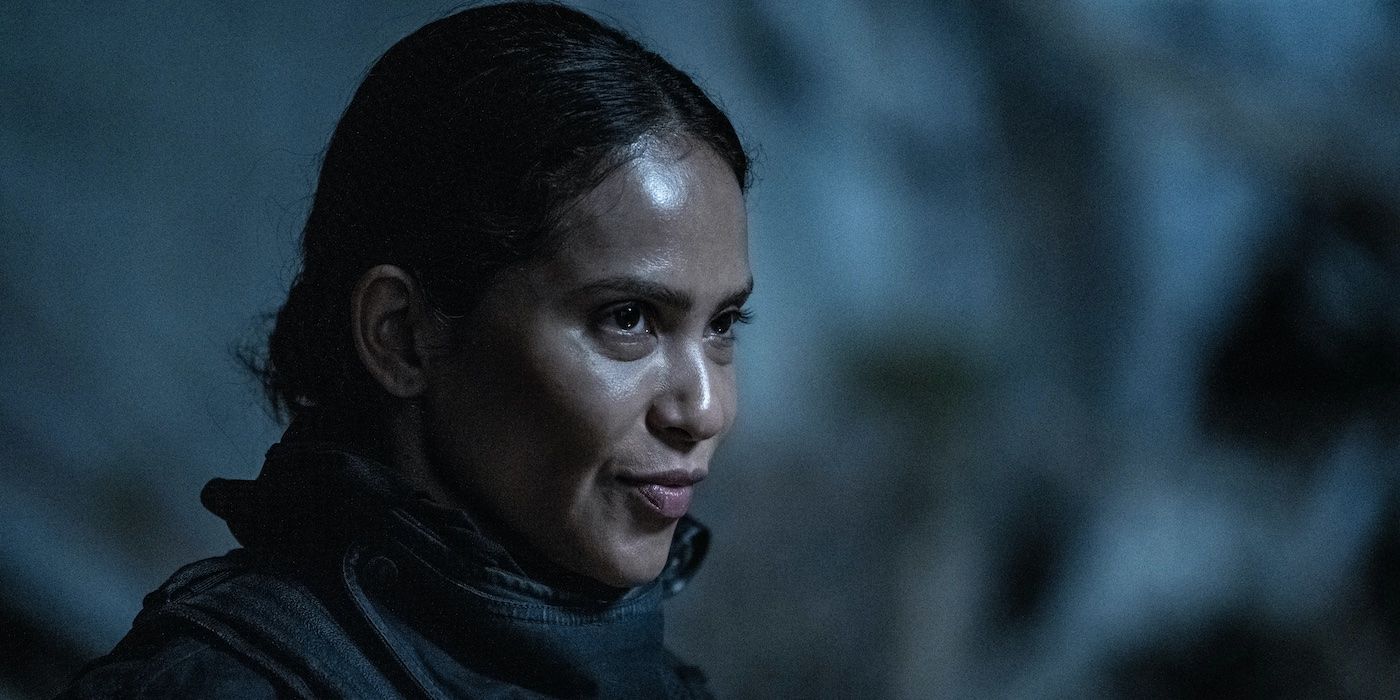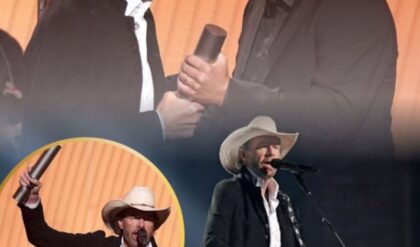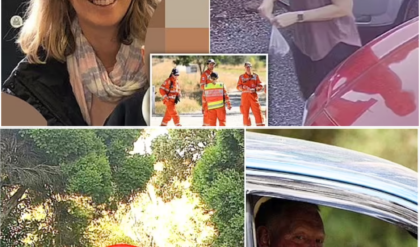In an interview with CBR, actors Lesley-Ann Brandt and Terry O’Quinn discuss the explosive and deadly The Walking Dead: The Ones Who Live finale.
The Walking Dead: The Ones Who Live has drawn to a close after six eventful episodes. Although the fight to demolish the CRM seemed quick, it was years in the making for Rick Grimes and Michonne. By the end of Season 1, Episode 6, “The Last Time,” the CRM has been fully dismantled into a new operation that focuses on the well-being of its city’s citizens and outsiders — which is made possible by killing the military’s top-ranking members.
Among those who perish in the fallout are CRM soldiers Major General Beale and Pearl Thorne. The latter had risen to the top of the ranks with Rick, only to abandon their friendship to carry out the CRM’s sinister Echelon Briefing. Rick’s pushback against the Echelon Briefing was a call for war against Beale, leading to a fight that the former was going to win. In an interview with CBR, actors Terry O’Quinn and Lesley-Ann Brandt look back on performing their duels like a dance and give their takes on the Echelon Briefing plot twist.
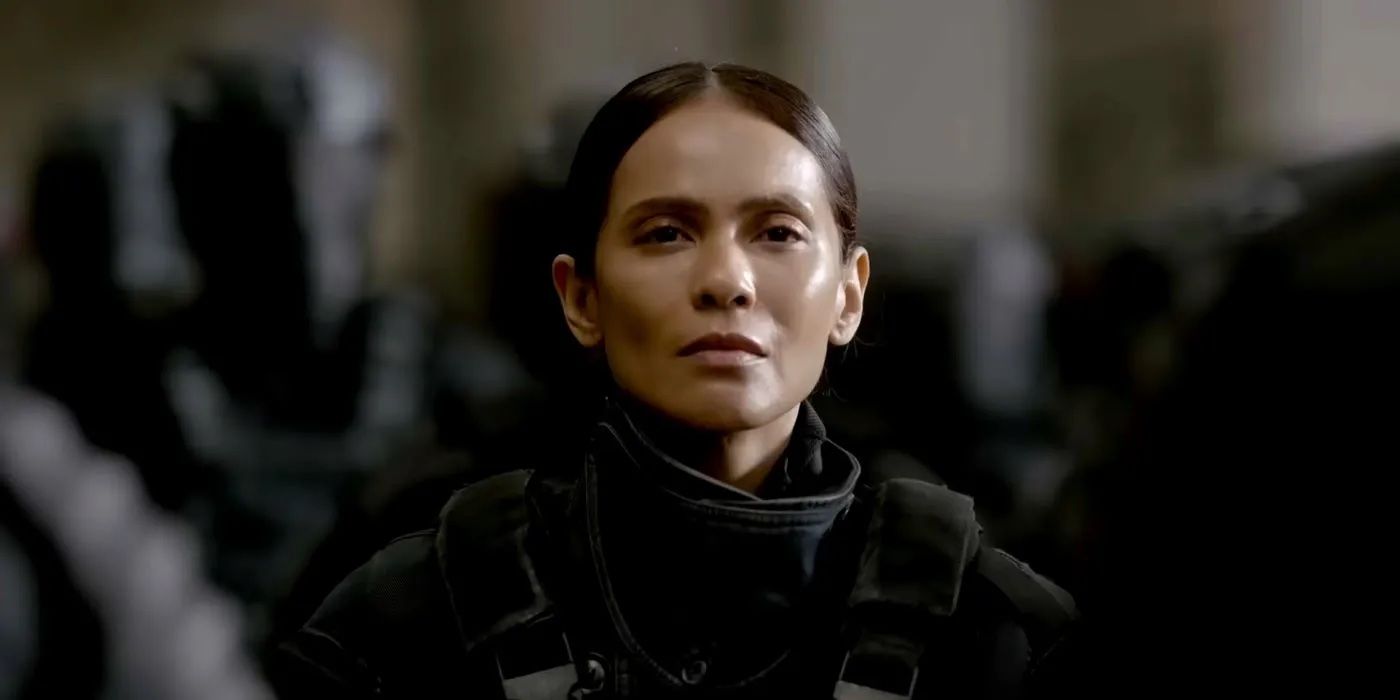
CBR: Both of your characters went out fighting, which is very on brand for them. Actors often say that performing a fight scene is like performing a dance because of the choreography. Would you say that’s accurate for your final scenes?
Terry O’Quinn: I suppose so, because I don’t dance very well either. My fight scenes 30 years ago were probably a little bit more active and believable, but I managed to get most of [this fight scene] done. Rick Grimes was a pretty good fighter, so he took care of me fairly easily.
Lesley-Ann Brandt: I love stunt choreography. I like to do a lot of my own [stunt work] if I can. For the most part, that is me under that mask. I love it because it’s such a connection you have to have with your opposite actor, knowing when to dodge and move. That fight was actually pretty intense. I fought Rick Grimes in the morning and then Michonne in the afternoon. Physically, that was 78 degrees humidity in full military gear. I was so wet. I was dying. They had to ice me down in between setups. But it’s a lot of fun. I think there’s a physicality to the character that you really get to see. I’m taking on Michonne, and then she stabs me. It’s a great way to go out.
Thorne’s last words were interesting because she says Craig Tate’s character Okafor was right, but Rick has to believe Beale was wrong. What was your interpretation of her final words?
Brandt: It was her thinking that Okafor was right about needing the CRM to change, and he was right about Rick. But the Beale part of it is — and I think that’s why Thorne hands Michonne the mask at the end — that they represent an army and a part of this community believes that they have to kill in order to survive as people. Whereas Rick and Michonne’s ideology and what Alexandria represents is true community in every sense of the word. They trust and take care of one another.
The Civic Republic doesn’t even know what the CRM is up to. They’ve just decided to sort of like go about their business. I think what she means is, “You just have to hope that Beale’s plan is wrong.” Beale’s laid out very clearly what will happen to humanity, and whether Rick gets to go home now, he’s still going to have the threat of a billion delts (walkers). Out there, people you love are still going to die. But I think she realizes she was wrong.
